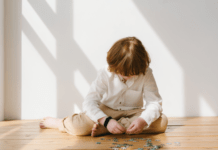 So far, the year 2020 has been a year of immense challenge and fear. We are experiencing a pandemic, racial and political unrest, and economic struggle. With time, these events can be a mechanism of positive change for us as individuals, a community, and a nation. There are elements of this time that will likely evolve into a new normal for our society. We have control over mindfulness and be proactive about our wellness. How we respond to these circumstances and process feelings will be instrumental in determining the legacy of current events.
So far, the year 2020 has been a year of immense challenge and fear. We are experiencing a pandemic, racial and political unrest, and economic struggle. With time, these events can be a mechanism of positive change for us as individuals, a community, and a nation. There are elements of this time that will likely evolve into a new normal for our society. We have control over mindfulness and be proactive about our wellness. How we respond to these circumstances and process feelings will be instrumental in determining the legacy of current events.
So What is “Normal” Right Now?
This question is challenging to ask ourselves! We don’t have anything to compare to our current environment. The entire culture of society has shifted, at least to a degree. It even depends on your location, how the pandemic and the murder of George Floyd impacted you or your community.
In this time of uncertainty, I encourage you to focus on what you can control:
- Reframe your thinking
- Develop mindfulness
- Process complicated feelings
- Invest your time in activities that nurture you
Instead of focusing on what a “normal” psychological response is for what’s going on right now, let’s acknowledge the fact that living amidst the unknowns, fears, restrictions, and general changes of the world today warrants a degree of emotional distress. It is natural to feel anxious, lonely, or out of control right now. It is unusual for someone not to have at least a mild emotional response to what’s going on.
You must allow yourself space to feel negative emotions. We need to process these feelings safely. How wonderful would it be if we chose to use these times of hardship as an opportunity for growth, as individuals and as a community?
We Don’t Have Control Over Others
It’s also important to remember that when people feel threatened or scared, they often react defensively with anger or opposition. This reaction was evidenced by something as seemingly innocent as the hoarding of toilet paper and other supplies several weeks ago. This defense mechanism is a way people feel less vulnerable. It takes immense emotional maturity and grace to be able to stand in the face of adversity and to react with compassion, calm, and love.
Undoubtedly, some of our neighbors and family members may not see eye to eye with us about what’s going. Here is where we may benefit from an ego check; not everyone has to agree with us. Everyone has their own experience and reaction to what is happening. We don’t know their story, and it isn’t our job. Being mindful of why the current events in our world elicit such volatility may help us to be more compassionate, for the benefit of ourselves and others. We can choose to use this as an opportunity for growth and change if we will only select compassion, patience, and listening to our neighbors.
What We Have Control Over
One of the most challenging elements of our circumstances is that there is plenty out of our control and unknown. Being out of power tends to make people feel afraid and defensive. We are unable to control so much about what’s going on. We can’t predict what’s going to happen. We can’t control other peoples’ actions or motives, how others react, the amount of hand sanitizer or toilet paper in the stores, the rules and regulations imposed, or whether or not people follow them. Perseverating on these things is generally unproductive and tends to direct our focus and energy toward unhealthy thoughts and feelings. Instead, we can choose to invest our energy to what we do have control over.
Here are some examples of what we are in control over:
- Limiting our exposure to news or social media
- Educating ourselves
- Listening to and respecting other people’s points of view
- Embracing the situation as it evolves
- How we choose to behave
- The attitude we have
Focusing on what we can control is sometimes shared with the expectation that it’s realistic (or possible) to eliminate negative thoughts or feelings. Remember, you’re human, and it’s not feasible to expect your mind to be full of fluffy clouds and serenity perpetually. You will feel uncomfortable feelings; it’s normal to experience anger, fear, and uncertainty. That discomfort is an opportunity for growth; how you react to those feelings is what truly matters.

Mindfulness, compassion, and empathy are a practice, meaning that they are always evolving and requiring maintenance.
We always have some degree of control; we have a degree of choice in how we respond to our environment. This fact is true even in awful, stressful, ugly situations where it feels like we have no control at all. Sometimes we also have to be intentional and choose to seek out things that we can focus on and control. There is power in your response. What will you want to invest your time in, how will you care for yourselves, how will you educate yourself, how will you respond? Will you choose fear and insecurity, or compassion, and empathy? These decisions are vitally important for the wellness unity for ourselves, our families, and our communities.

















